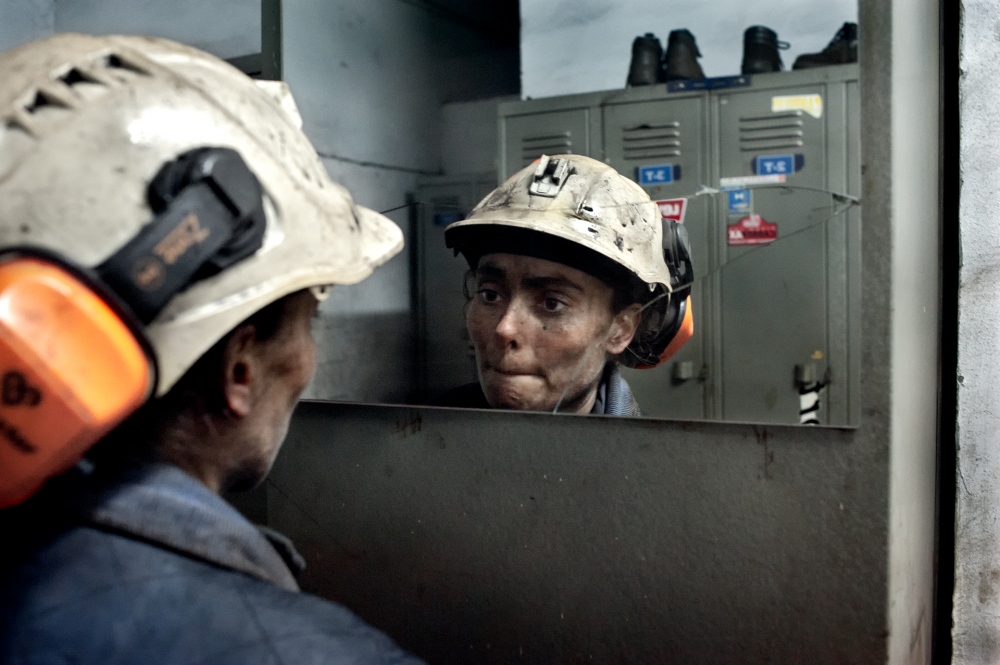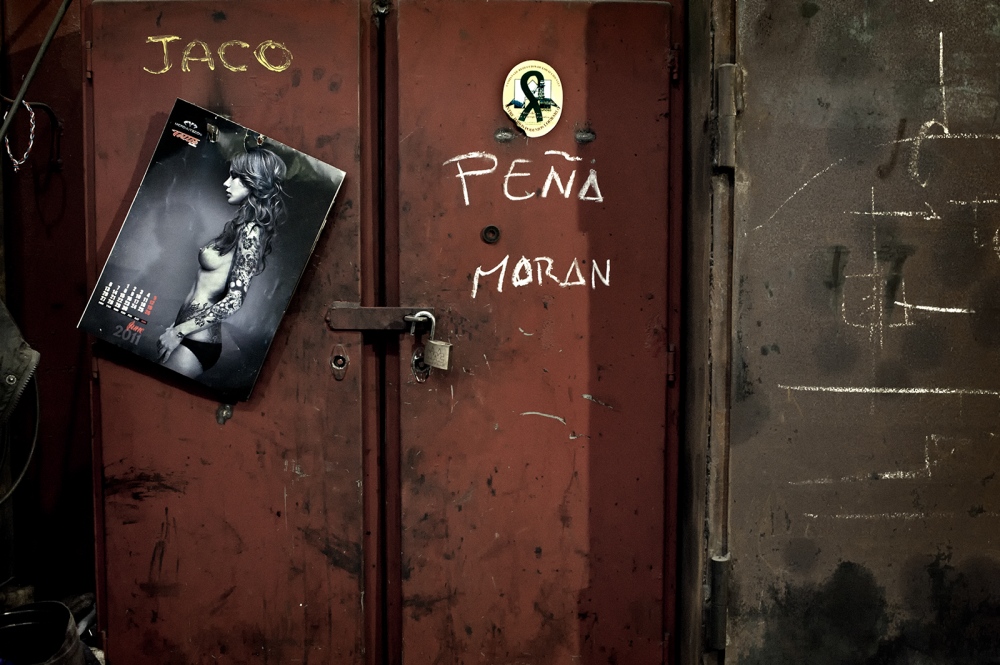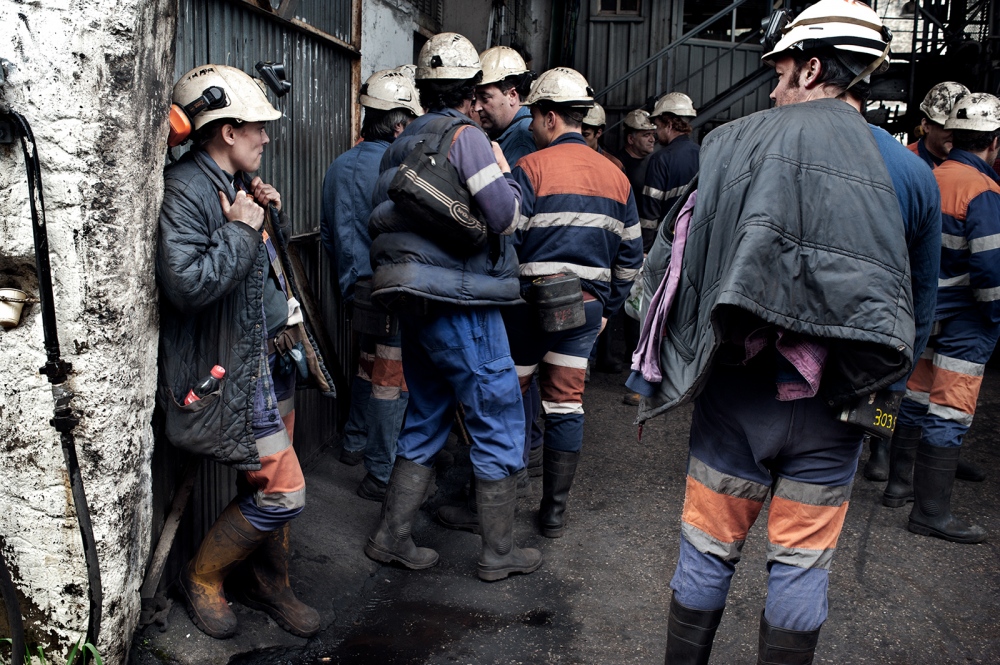Asturias used to attract by its wealth and richness. Families from all over the country were immigrating here looking for a job. Thanks to the mine, the villages around the wells, obtained electricity and running water. But when the closure of the mine was decided, whole region entered a slow agony. A drastic restructuring process started and two thirds of the shafts have already been closed. The mining founds, designated for creating new jobs, were mismanaged and most of the population had to live the region.
Bea's family is one example among many that carries the tradition of mining in their blood. Mother of three children, Bea began to work in a shaft 10 years ago. Like all women working in the mine, she got her job through an "absolute preference" program, intended for families of miners killed in work accident. Bea lost her oldest brother in the mine. "Thanks to that", years later a miners union offered a permanent job to her and to her sister.
Bea's family lives in a small village, situated next to on of closed shafts. Formerly full of life, the village counts now only two families. Bea works in the same shaft as her husband, Miguel. For them, the closure of the mine means to lose their only source of income. They will probably be forced to consider emigration. With no education, no training and three kids, they are rather pessimist about their future.
Many mining families in Asturias combine their work in the mine with working in the fields and/or with livestock. Bea and Miguel have cows and horses. They both dream about having one day a real stud farm. But at the same time, Bea says she cannot imagine her life without the mine. Loosing the job is not only limited to an economic problem. It's much more than that. It's loosing the lifestyle and the identity.
Chris, the eldest son of Bea, belongs to the generation of those just arriving on the labour market. He doesn't see his future in a bright colours neither. He would have liked to follow the steps of his parents and work in the mine. But he has to resign to search other options. For now, he helps his parents with a work in the fields and livestock. He also did a butcher's course. But in a region that is being emptied of its inhabitants, soon he will probably also have to consider emigration.
It is difficult for the miners to accept that the coal has no future. The shafts are being closed and the burning quota (amount of domestic coal that mines can sell to thermal power plants) is being reduced. But the consumption of coal does not gown down and large amounts of coal are being imported from abroad. Most of the coal imported to Spain, comes from Latin America. As the miners remark, "everybody knows what are the working conditions in Colombian's mines." So the price of imported coal may seem low, but at what actual coast?































